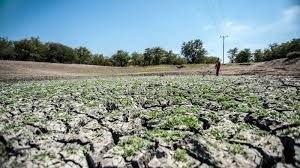By: Ollus Ndomu
The last few weeks have been marked by extreme rise in temperatures across the southern Africa. From mid and late November, countries including Zambia, Zimbabwe, Mozambique, South Africa, Botswana and Namibia, have experienced lashes of heatwaves coupled with prolonged dry spells.
Governments have been calling on citizens to adopt more healthy lifestyles so that to survive the drastic environmental changes. In late November, Botswana’s Health Ministry advised people to reduce alcohol and caffeine, but to drink lots of water.
The ministry also called on public hospitals to be on high alert in anticipation of the effects of a heatwave currently spreading in region:
“Individuals may experience symptoms, such as heat cramps, heat stroke, heat exhaustion and severe sunburn, due to the excessive heat. Individuals experiencing such signs are advised to visit the nearest health facility,” said Dr Christopher Nyanga, the health ministry’s secretary, in a statement.
Similar calls have been made by other countries in the region, and we call on authorities to prepare for possible worst food and energy crises.
The region is yet to diversify its energy sources, to stop its over-dependence on hydro-power. Under the current state of affairs, a prolonged dry spell could trigger an energy crisis that would significantly trickle down the already weak economies in the region.
For countries like Zimbabwe faced with starvation and famine, the prolonged hot spell is likely to worsen the situation.
The International Federation of Red Cross and Red Crescent Societies (IFRC), a network of humanitarian aid organisations, says in the case of Zimbabwe, the heatwave will invite floods.
“The country is still experiencing a heatwave and no rain, which might be favourable to storm surges. The seasonal forecast has predicted a normal to above normal rainfall season. This scenario increases the chances of flooding,” the organisation said.
According to UN estimates, seven million Zimbabweans are in need of food aid.
A prolonged heat spell in this could migrations of economic refugees to South Africa.
In the case of Zambia, if this prevailing dry spell prolongs even further, there could be widespread hunger as food prices could become exhorbitant. Currently, the country is grappling with the seemingly unsustainable public debt, not to mention the ripple effect of Covid-19 on the economy. The situation could be dire.
We urge the Zambian government to pause the earmarked maize grain exportation to the neighboring DR Congo, while we advise all regional governments to prepare for anything as climate change takes its toll on the region. Forewarned is forearmed.


